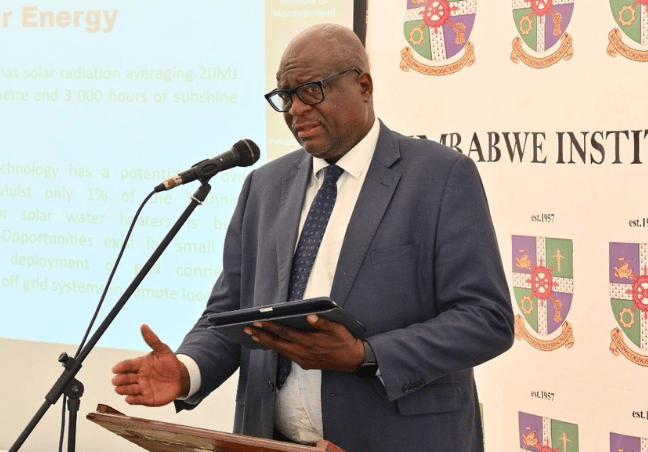- Renewables Rising
- Posts
- Europe doubles down on Africa’s energy transition
Europe doubles down on Africa’s energy transition
Dear subscriber, today we’re all about action & ambition. The EU may single-handedly reshape investor confidence in Africa’s energy markets. And bold reforms are shaking up the Zimbabwe power sector. We hope our stories help you make better decisions!
South Africa’s path to cleaner power just received a major boost with a $13 billion investment pledge from the European Union. The funds will help build new renewable power plants, upgrade ageing grids, and expand energy storage capacity, a critical step toward transforming one of the world’s most carbon-intensive electricity grids. |
The new funding builds on the $5 billion announced in March, reaffirming Europe’s long-term commitment. It will mobilise public and private capital through the EU’s Global Gateway initiative.
Following power sector reforms, South Africa has attracted over $20 billion in funding and commitments since the start of the year.
Our take: The large-scale commitment provides much-needed confidence for private financiers wary of South Africa’s market changes … Read more (2 min)
Zimbabwe’s energy regulator (ZERA) will introduce a new competitive bidding process for electricity generation projects in 2026. This move, which replaces the current unsolicited bid system, is part of wider reforms aimed at opening the market to private companies. ZERA hopes the new process will attract investment, reduce tariffs and improve project quality. |
The announcement comes as Zimbabwe prepares to liberalise its electricity retail sector, allowing private companies to sell and distribute power, while the state utility retains control of the national transmission network.
South Africa, Namibia, Ethiopia, Uganda, Mozambique and Zambia have implemented competitive bidding models for renewable energy projects, yielding positive results in terms of cost reduction and capacity growth.
Our take: Liberalising electricity markets in Africa will boost the uptake of renewables… Read more (2 min)
The debate over who should be prioritised in electrification between families and firms continues to divide experts and policymakers. Some believe families should come first, while others argue that industries must lead. Wale Aboyade adds his voice to the discussion, sharing insights on how Mission 300 can bridge both goals and ensure inclusive progress. |
“Households may only have basic needs today, but meeting those needs is what makes people more productive in their current realities. You cannot have productive use of energy without productive people,” says Mr Aboyade.
He is the Vice President of Public Policy and Government Relations at Sun King, a leading solar company focused on expanding off-grid energy access.
Read the rest of the opinion piece here… Read time (5 min)


ENGIE North Africa’s team congregates at the World Power-to-X Summit 2025
Events
🗓️ Attend the Solar & Storage Live Cape Town 2026 event (Oct 15)
🗓️ Be at the Power Energy Ghana Expo 2025 forum (Oct 31)
🗓️ Participate in the Windaba 2025 event (Oct 21)
🗓️ Register for the first-ever African Energy Efficiency Conference (Dec 10)
Jobs
👨🏻💻 Become Scatec Solar’s Senior Accountant (South Africa)
👩🏻💻 Lead M-KOPA’s Retail and Logistics operations (Uganda)
💼 Join Sun King as their Regional Collections Manager (Malawi)
Various
💸 Grid Africa obtains $14 Million to roll out 20 MW of energy projects
🤝 SPS and EXSA commence final testing on $4.6M solar power plant
🔋 Westbrooke takes over solar installations at Shell Service Stations in SA
Seen on LinkedIn
Amara Irobi, Business Development & Partnerships Manager at CEESOLAR, says, "Most boards still treat energy like fuel: something to manage, pay for, and tolerate outages from. That’s short-term thinking.”


